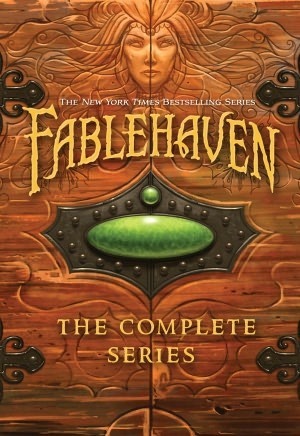More on this book
Community
Kindle Notes & Highlights
by
Brandon Mull
Read between
May 4 - August 2, 2019
Grandpa became very serious. “None of these creatures are good. Not the way we think of good. None are safe. Much of morality is peculiar to mortality. The best creatures here are merely not evil.”
“Adults always underestimate kids,” Seth said. “They get all protective because they think we’re babies. Think about it. Mom used to complain all the time about me playing in the street. But I always did it. And what happened? Nothing. I paid attention. I stayed out of the way when a car came.”
The curse of mortality. You spend the first portion of your life learning, growing stronger, more capable. And then, through no fault of your own, your body begins to fail. You regress. Strong limbs become feeble, keen senses grow dull, hardy constitutions deteriorate. Beauty withers. Organs quit. You remember yourself in your prime, and wonder where that person went. As your wisdom and experience are peaking, your traitorous body becomes a prison.”
Evil likes darkness.” “Why is that?” Seth asked. Grandma thought about the question a moment before answering. “Because evil likes to hide.”
“Can you see the power emotion has to distort our outlook? Makes you wonder, did you have a bad day, or did you make it a bad day?”
“Running toward danger is foolhardy. As your brother has hopefully learned. But so is closing your eyes to it. Many perils become less dangerous once you understand their potential hazards.”
If I had a daughter and a son, there are certain things I see myself doing with one and not the other. I know everybody is busy trying to pretend boys and girls are exactly the same nowadays, but that isn’t how I see it.
“There is a fundamental principle of magic that applies to many other things as well: Everything with a beginning has an ending. Any magic that can be done, can be undone. Anything you can make, can be unmade. In other words, any prison you can create, can be destroyed. Any lock can be broken.
Was the purpose of life learning to endure boredom?
“Seth, against all odds, I’ve lived a longer life than most men. And like any thinking man, I’ve tried to figure out the meaning of my existence. Closest I’ve ever come is deciding that the purpose of life must be to learn to make wise choices. I believe that, and try to live by it.
“In my opinion, good choices are not always safe choices. Many worthy choices involve risk. Some require courage.
“Making mistakes is part of learning to choose well. No way around it. Choices are thrust upon us, and we don’t always get things right. Even postponing or avoiding a decision can become a choice that carries heavy consequences. Mistakes can be painful—sometimes they cause irrevocable harm—but welcome to Earth. Poor choices are part of growing up, and part of life. You will make bad choices, and you will be affected by the poor choices of others. We must rise above such things.
“Remember!” Bracken shouted. “This orchard is a death trap! The pleasures it promises are garish wrappings over deadly gifts. Remember that we chose not to partake. Force your mind to control your base urges.”
She kept her eyes squeezed shut and resisted. The smells were lies. False promises. Her instincts rejected the mental assertions. How could something so sublime be hazardous? But Kendra kept her mind in control.
No. She had promised herself, and her friends, that she would pass through the grove without trying the fruit. Even with the best intentions, to smell the fruit might lead to tasting the fruit. Lowering her head, she charged out of the orchard, raced across the clearing beyond, and took cover behind a bush.
Prisons protect the freedom of the masses from those who abuse their freedom.
Some imagine the difference between heaven and hell to be a matter of geography. Not so. The difference is much more evident in the individuals who dwell there.”


